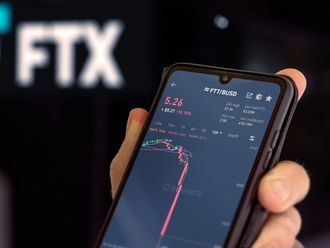Beijing: China’s Commerce minister called for clearer guidelines from the United States on its security review procedures for foreign investment, while saying that China does not target specific countries for overseas investment.
China is studying the procedures of the Committee on Foreign Investment in the United States, or CFIUS, as it sets in motion its own security review, Chen Deming told reporters on Friday at a briefing at China’s annual parliament session.
China, the world’s fifth-largest source of outbound investment, regularly complains that the US blocks access to plum investment prospects on national security grounds.
China’s largest-ever foreign takeover, the $15.1 billion purchase of Canadian oil firm Nexen Inc by state-owned oil company CNOOC Ltd in February cleared a CFIUS review, its last regulatory hurdle.
The US attached the condition that CNOOC could not operate Nexen’s many wells in the US Gulf of Mexico, although the Canadian unit could, the Wall Street Journal reported.
“I hope CFIUS can be more open and transparent, because companies never know whether their bid meets the requirements or not,” Chen said, adding that “unfair” conditions had been attached to the Nexen approval.
“We need clearer guidelines on what conditions might violate US security, to reduce risk for companies that want to invest. We hope to reduce disappointment and the cost of failed bids.”
A US Treasury Department spokeswoman in Washington defended the CFIUS system, which she called “transparent” and “true to the United States’ open investment commitment.”
“The statute, executive order, regulations and guidance setting forth the CFIUS process are fully and publicly disclosed and available on the Treasury Department’s website,” she said.
US companies, for their part, complain China heavily restricts foreign investment in about 100 different sectors.
“In the May 2012 strategic and economic dialogue, China committed to open further to foreign investment and to focus its security reviews solely on national security concerns. We will continue to engage China on implementation of its commitments,” the Treasury Department spokeswoman said.
BARRIERS TO INVESTMENT
US Treasury officials have sought to include information on CFIUS in regular meetings with Chinese officials, in the hopes that China will adopt some CFIUS features for its new national security review, particularly setting deadlines to respond to investment review requests.
International trading house Glencore has been waiting for months for a ruling from MofCom, which regulates anti-trust issues, for its planned takeover of zinc miner Xstrata.
China has blocked almost all attempts by foreigners to buy steel mills as well as a number of other high-profile deals, for instance an attempt by Coca-Cola Enterprises to purchase private juice maker Huiyuan.
Chinese officials regularly bring up CNOOC’s failed $18.5 billion attempt to buy US oil firm Unocal in 2005, which the US side blocked over national security concerns. Since then, Chinese investment in the United States has soared, Chen said.
“Roughly one dollar of every three dollars we want to invest in the US gets approved, so the approval rate is not very high, but conditions are improving,” he said.
“When I meet with American governors or mayors, they really welcome Chinese corporate investment,” Chen added.
Chinese investments in the United States now include auto parts, steel and real estate, while most US manufacturing firms operate wholly owned or joint-venture facilities in China.
CNOOC’s deal with Nexen is not the only Chinese energy investment in the United States. Chinese oil company Sinopec has recently announced a shale-gas joint venture with American gas developer Chesapeake Energy.
Asked if China had a strategy to invest in the US energy sector, Chen said Chinese companies determine their own investment targets. The government provides support and advice, he said, but does not have strategic targets for specific countries.
Nonetheless, the Chinese government has in the past blocked private Chinese firms’ attempts to buy overseas companies. Most recently, China’s top planning body said it would not approve a private company’s purchase of an African iron ore mine unless state-owned companies had a share in the deal.












